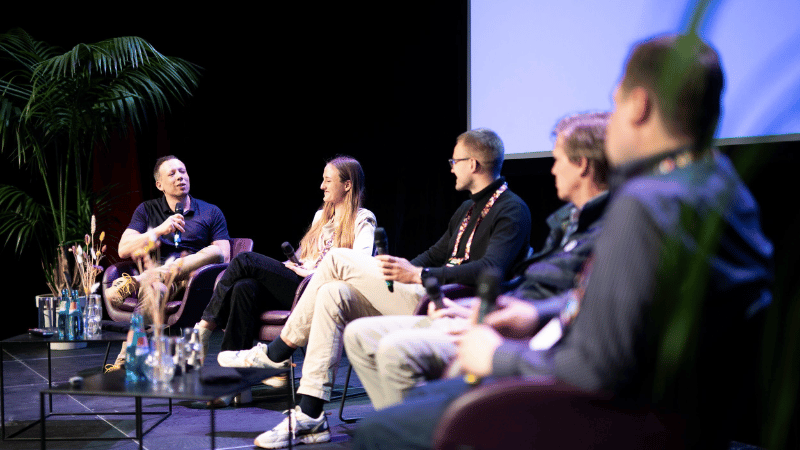The 15th HHL SpinLab Investors Day started with the keynote "CEE from a VC perspective" by Alexandru Agatinei from How to Web. Events such as the Wolves Summit or the Latitude59 have made a lasting impact on us over the years. According to a recent report by Dealroom, CEE startups are now worth €213 billion, with Poland, Ukraine, and Estonia contributing 50% of the region's enterprise value.
WHAT CEE Startup Ecosystem HAS TO OFFER
In one of the panel talks Linda Vôeras (Karma Ventures), David Polach (J&T Ventures), Kadi-Ingrid Lilles (Iron Wolf Capital), Karol Szubstarski (OTB Ventures) and Nadine Schimroszik (Handelsblatt) discussed the opportunities and challenges of investing in Central and Eastern Europe (CEE).
All four panelists agreed that CEE is a promising region for venture capital, as it is known for its strong technical talent, particularly in deeptech and AI, which are rapidly growing sectors. Despite the promising potential, the market is still underserved, and investors must navigate the diverse and heterogeneous nature of CEE countries.
The success of Estonia was a focal point, with Linda Vôeras attributing it to community-building and shared values. She introduced the concept of "Mudita," meaning “finding joy in others' success”, which she believes has been crucial for Estonia’s growth. However, Karol Szubstarski pointed out that the heterogeneity of the CEE countries must be acknowledged and that "Mudita" does not work in Poland, for example, a country that has yet to reach its full potential, despite its strong engineering talent, and asked the appropriate question: "What is missing?"
WHAT DOES CEE LACK OF?
Kadi-Ingrid Lilles emphasized the importance of contrarian and visionary investors to break away from trend-driven investment patterns, while Linda Vôeras mentioned the region's lack of commercial talent as a barrier to fully realizing its potential. She also discussed the region's limited experience with managing large funds, though this is gradually changing. Karol Szubstarski explained that smaller funds in CEE are typically supported by family offices in traditional industries, in contrast to larger funds managed in the more established markets of the US or the rest of Europe. He pointed out the difficulty of convincing these funds to go for a CEE-based startup instead of choosing from their own extensive, proven portfolio.
Kadi-Ingrid Lilles then pointed out: “Many of the funds are being regionally supported by governmental fund managers and they are very strict in terms of how much it can deploy and where geographically - that sets boundaries on how regionally expansive you can be as well as how much capital are you realistically able to manage.”
The panel also addressed the difficulties in securing exits and M&A activities. Although recent tech exits in Estonia indicate progress, the global market is currently struggling with exits. Karol Szubstarski commented: “We are still in a buyers market not sellers market. In most cases I wouldn’t say that selling is the best idea at the moment. Exits, if facilitated, wouldn’t give the best returns right now.”
David Polach stressed the importance of early preparation for exits and demonstrating liquidity to LPs: “I think that currently as a fund manager it’s important (...) to show that you are actually able to complete a whole cycle from investing over managing until exit.”
WHAT SHOULD INVESTORS CONSIDER WHEN IT COMES TO CEE?
Karol Szubstarski suggested focusing on the region's technological talent and combining it with strong sales skills, while David Polach advised building trust with founders early on and really listening to them. Linda Vôeras concluded the discussion by summarizing: “The overall approach that works in the CEE is high touch and not pushing or forcing.”
On our LinkedIn page you can find a recap of this years Investors Day.






/RootCamp_Logo-Ecosystem.png?width=200&name=RootCamp_Logo-Ecosystem.png)
/Bitroad_Logo-Ecosystem.png?width=200&name=Bitroad_Logo-Ecosystem.png)



/White%20Versions/stadt_leipzig_white.png?width=130&name=stadt_leipzig_white.png)
/lfca_white.png?width=119&name=lfca_white.png)

/White%20Versions/sachsen_signet_white.png?width=65&height=79&name=sachsen_signet_white.png)